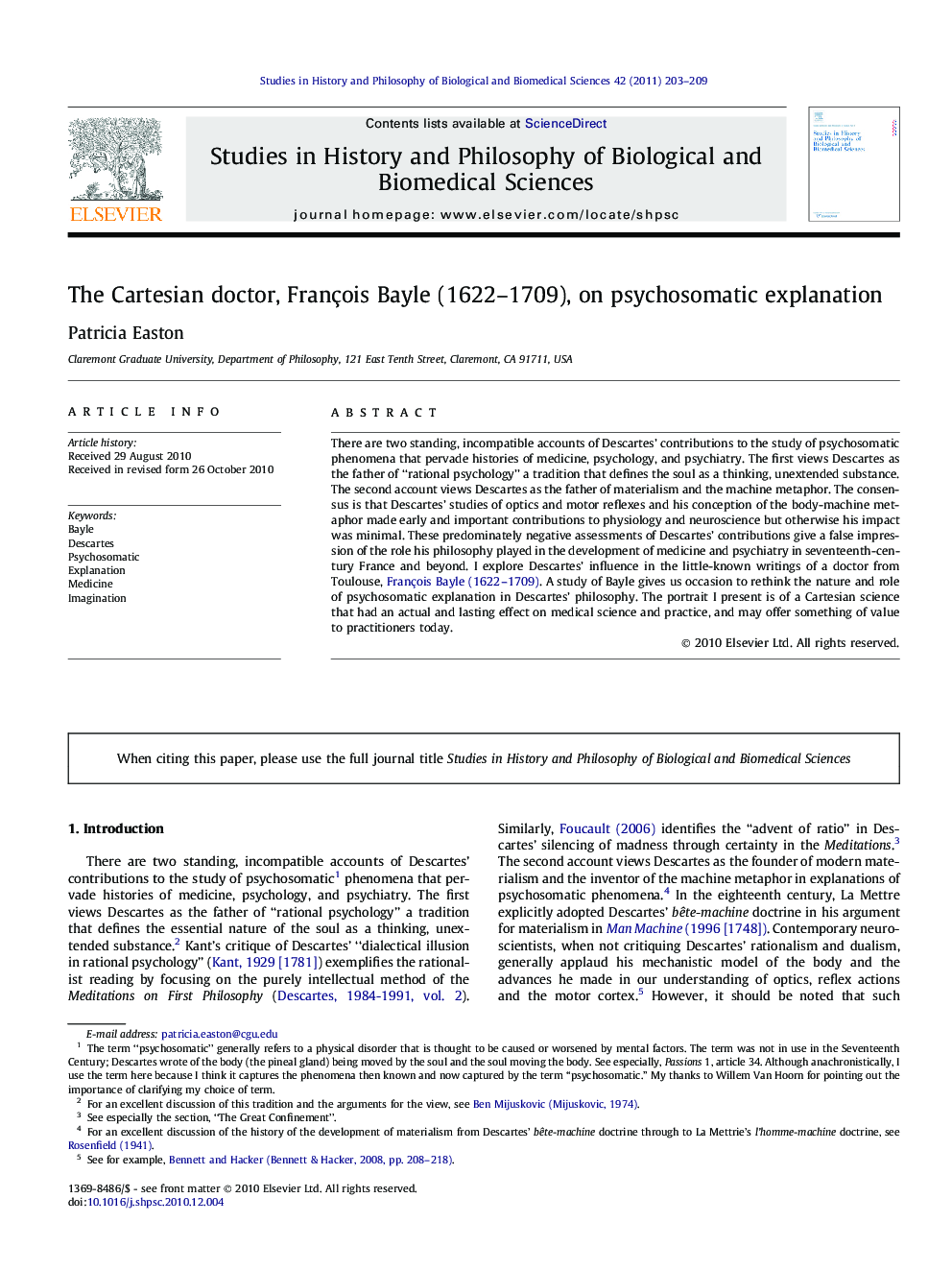| Article ID | Journal | Published Year | Pages | File Type |
|---|---|---|---|---|
| 7553203 | Studies in History and Philosophy of Science Part C: Studies in History and Philosophy of Biological and Biomedical Sciences | 2011 | 7 Pages |
Abstract
There are two standing, incompatible accounts of Descartes' contributions to the study of psychosomatic phenomena that pervade histories of medicine, psychology, and psychiatry. The first views Descartes as the father of “rational psychology” a tradition that defines the soul as a thinking, unextended substance. The second account views Descartes as the father of materialism and the machine metaphor. The consensus is that Descartes' studies of optics and motor reflexes and his conception of the body-machine metaphor made early and important contributions to physiology and neuroscience but otherwise his impact was minimal. These predominately negative assessments of Descartes' contributions give a false impression of the role his philosophy played in the development of medicine and psychiatry in seventeenth-century France and beyond. I explore Descartes' influence in the little-known writings of a doctor from Toulouse, Bayle, 1670, Bayle, 1676. A study of Bayle gives us occasion to rethink the nature and role of psychosomatic explanation in Descartes' philosophy. The portrait I present is of a Cartesian science that had an actual and lasting effect on medical science and practice, and may offer something of value to practitioners today.
Related Topics
Life Sciences
Agricultural and Biological Sciences
Agricultural and Biological Sciences (General)
Authors
Patricia Easton,
